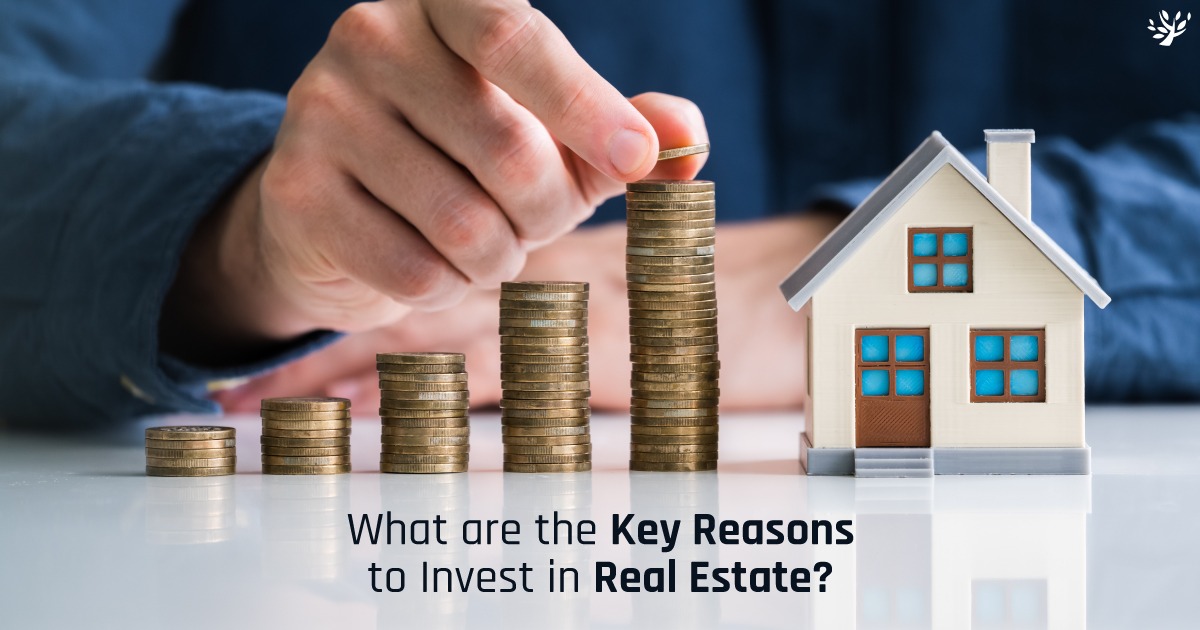
What are the Key Reasons to Invest in Real Estate?
There are several reasons to investing in real estate. If someone chooses the assets wisely, he can enjoy a healthy cash flow, excellent returns, tax advantages, and diversification life-long. It’s possible to use real estate to build a good wealth. Real-estate is the first name that comes in our mind while thinking about investment. People prefer to invest in real estate and there are several reasons to do that. Here are some facts that you need to know about real estate benefits. These are some reasons that make real estate a good investment.
Cash Flow
Cash flow is the net income earned by the real estate investment after mortgage payments and operating expenses are being made. The major benefit of investing in real estate is its ability to generate cash flow. In most cases, the cash flow only strengthens over time as you pay down your home loan—and build up your equity.
Tax Breaks and Deductions
The next thing on the table is breaks and deductions. Real estate investors have the leverage of taking the advantage of a lot of tax breaks and deductions. It can further save money at tax time. In simple words, you can deduct the reasonable costs of owning, operating, and managing a property.
Fast Fact
There is another interesting thing in real estate investment. The cost of buildings can go under depreciation but not the cost of land.
Furthermore, you can expect the cost of buying and improving an investment property to go under depreciation over its useful life (27.5 years for residential properties; 39 years for commercial). You will get the benefit from decades of deductions and it will help you to lower your taxed income which is another tax perk.
Appreciations
Everybody knows that the real estate investors generate revenue by rental income. Any profits generated by property-dependent business activity, and appreciation. Real estate values tend to increase over time, and with a good investment, you can turn a profit when it’s time to sell. Rents also tend to rise over time, which can lead to higher cash flow.
Build Equity and Wealth
After paying the property mortgage, you build equity—an asset. This asset then becomes a part of your net worth. When you have equity, you have the leverage to buy more properties later this will increase the cash flow and wealth even more.
Real Estate Leverage
Leverage means to use various financial instruments or borrowed capital (e.g., debt) to increase an investment’s potential return. A 10% down payment on a home mortgage, gets you 100% of the house you want to buy, it’s called the leverage. Real estate is a tangible asset and further, it can be served as collateral.
Competitive Risk-Adjusted Returns
You must know that Real estate returns vary. It depends on factors such as location, asset class, and management. Keeping this fact aside the investors aim to beat the average returns of the S&P 500. The average annual return in the last 50 years is about 11%.5
Inflation Hedge
Inflation avoids the capabilities of real estate stems. Real-estate offers a positive relationship between GDP growth and the demand for real estate. As economies grow, the demand for real estate makes the rentals go higher. It can further turn out to be higher capital values. Which means real estate helps to maintain the buying power of capital. It happens because of the passing some of the inflationary pressure on to tenants and by putting some of the inflationary pressure in the form of capital appreciation.
You must know one thing – Mortgage lending discrimination is illegal.
Real Estate Investment Trusts (REITs)
In case you want to invest in real estate, but you think that you are not ready to make the jump into owning and managing properties, you have another option in your hands. You can consider a real estate investment trust (REIT). They allow you to buy and sell publicly-traded REITs on major stock exchanges. REITs are required to pay out 90% of income to investors; hence they barely offer higher dividends than many stocks.
The Bottom Line
As everything comes with the pros and cons, apart from all the benefits of investing in real estate, there are drawbacks. One of the main drawbacks is the lack of liquidity. Unlike other investments like stock or bond transactions, which can be processed in seconds a real estate transaction can take a long time to close. Even if someone takes the help of a broker, it can take more than a few weeks of work just to find the right counterparty.
Real estate is surely a distinct asset class that’s simple to understand. Also, it may enhance the risk-and-return profile of an investor’s portfolio. While investing in real estate if you are a first-timer, you must consult somebody who has a better experience than you do. Real-estate consulting companies here do their job at best.



